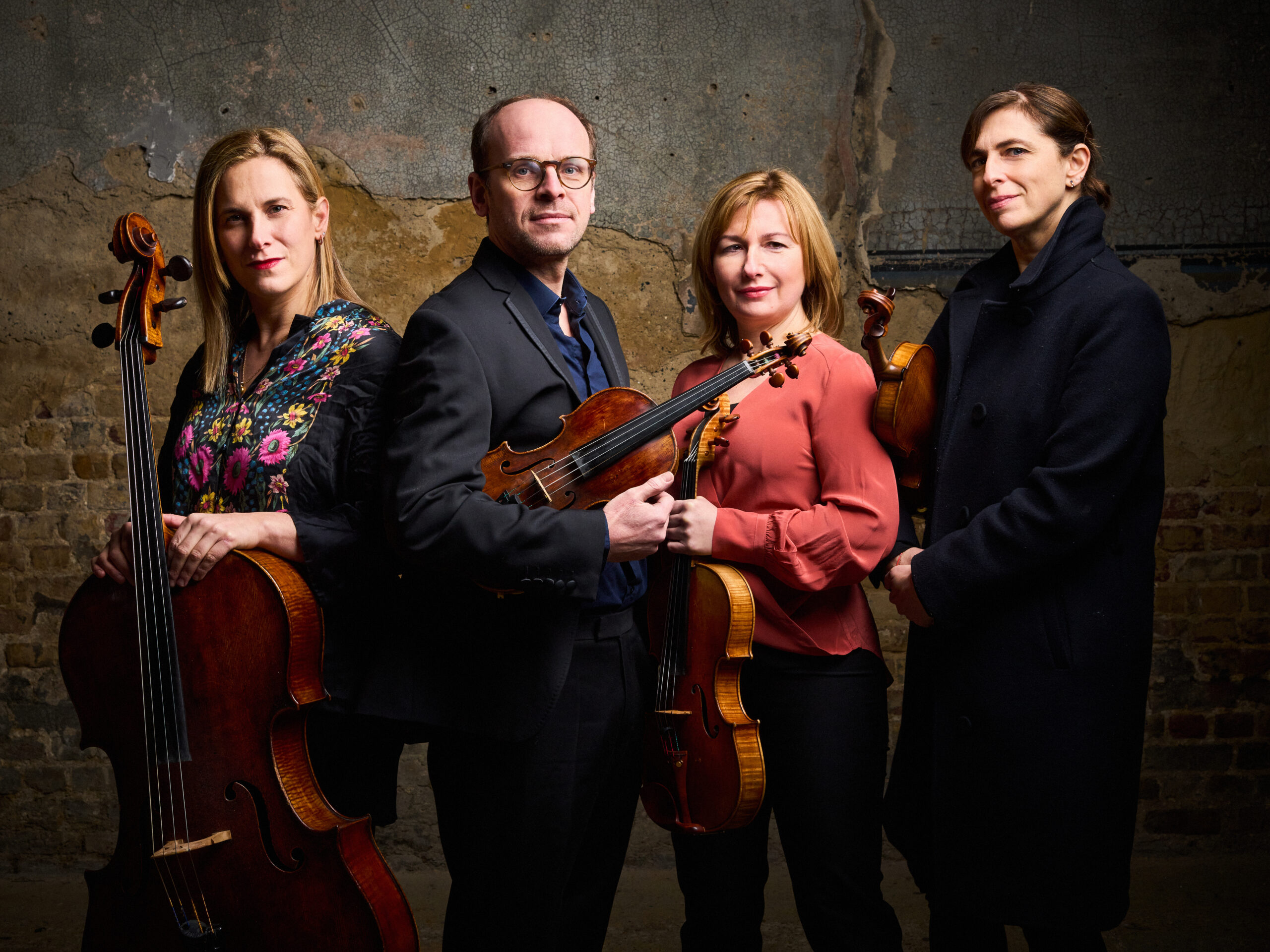HARMONIEMUSIK
Ensemble 360 & Guests
Channing Hall, Sheffield
Friday 16 September 2022, 7.00pm
£15
£10 Disabled / UC and PIP recipients
£5 Under 35s & Students

BEETHOVEN Sextet in E flat Op.71 (18’)
BEETHOVEN Octet in E flat Op.103 (23’)
MOZART ‘Harmoniemusik‘ from The Marriage of Figaro (18’)
Music for wind instruments (Harmoniemusik) was regularly composed in the 18th and 19th centuries, and Beethoven’s Sextet and Octet are two of the finest examples of this genre. The Sextet was reviewed at its premiere as “distinguished by fine melodies and a wealth of new and surprising ideas”, and the Octet is just as lyrical.
This concert features guest appearances from participants in Music in the Round’s Wind Development programme, Bridging the Gap: Tamara Sullivan (oboe), Ola Akindipe (clarinet) Ben Garalnick (horn) and Florence Plane (bassoon).
A bar will be serving beer, wine and soft drinks from 6.30pm.
BEETHOVEN Ludwig van, Sextet in E flat Op.71
Adagio. Allegro
Adagio
Menuetto. Quasi Allegretto
Rondo. Allegro
When Beethoven sent the score of his Sextet to the publisher Breitkopf & Härtel in 1809, he was modest about it: ‘The Sextet is from my early days and, moreover, it was written in a single night. There is really no other way to say that it written by a composer who produced some better works.’
Scored for pairs of clarinets, bassoons and horns, it was composed in 1796 (the high opus number is misleading). The Sextet is an elegantly crafted piece in which the young Beethoven also explores some unusual sonorities, not least the rich lower registers of all six instruments in the Adagio where the bassoon presents the main theme. The vigorous Minuet and Trio is launched by the sound of hunting horns, while the Rondo is a spirited movement, bringing this little-known work to a cheerful close.
© Nigel Simeone
BEETHOVEN Ludwig van, Octet in E flat Op.103
Allegro
Andante
Minuet
Presto
The high opus number of Beethoven’s Octet for two oboes, two clarinets, two bassoons and two horns is misleading since it is one of the composer’s earliest pieces from his Vienna years: he started it while still in Bonn – and finished it in 1793, shortly after his arrival in the Austrian capital. It was reworked two years later as the String Quintet Op.4. Woodwind chamber music was all the rage in the late eighteenth century, nowhere more so than in Vienna, and it was usually written for performance outdoors. Like Haydn, Mozart and many others, the young Beethoven fulfilled the late eighteenth-century taste for Harmoniemusik (music for wind band) with cheerful, relatively undemanding works, of which his most substantial was this Octet.
Beethoven’s Octet was completed just when he started to take lessons from Haydn – and the wisdom and subtlety gained from those can be heard in his string quintet transcription (despite Beethoven’s far-fetched claim that he ‘learned nothing’ from his sessions with Haydn). But the Octet in its original version is one of Beethoven’s freshest early works. He clearly had good players in mind – the orchestras in Bonn and Vienna at the time evidently had wind sections with a taste for virtuosity, as can be heard especially in the delightful finale of this four-movement work. The first movement is engaging and straightforward, while the lyrical Andante has particularly prominent parts for oboe and bassoon. The Minuet is interesting: it’s already a long way from the courtly dance of its title, and an early example of what Beethoven would soon develop into the scherzos familiar from his symphonies.
© Nigel Simeone
MOZART Amadeus, ‘Harmoniemusik’ from Le nozze di Figaro for wind octet
Harmoniemusik – music for wind ensemble – was something that delighted Mozart, both as a composer (producing what are perhaps the finest serenades for woodwind ever written) and as someone who was willingly entertained by the arrangements that were often made of favourite numbers from operas of the day. Mozart himself alludes to this in a delightful way with the musical entertainment during the banquet in Act Two of Don Giovanni when a wind band plays tunes from operas by Soler, Sarti and also the aria ‘Non più andrai’ from Mozart’s own Nozze di Figaro.
Contemporary wind arrangements of Mozart’s music proliferated, including extracts from Figaro, Don Giovanni and Die Entführung aus dem Serail, while a selection of Harmonie arrangements from Die Zauberflöte was advertised in the Wiener Zeitung in January 1792. All provide delightful music for entertainment and sometimes include interesting clues about performance practice (giving an oboist, for example, an ornamented vocal line that included decorations as performed by singers but not included in the printed score of the opera itself). The identity of early arrangers is sometimes hard to determine, though the oboist Johann Wendt was particularly important as chief arranger for the Harmonie established by Emperor Joseph II in 1782. The best Harmonie arrangements, by Wendt and others, remain a charming way to experience operatic music in a new guise.
© Nigel Simeone













